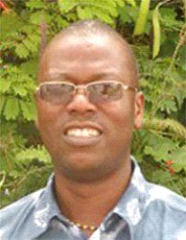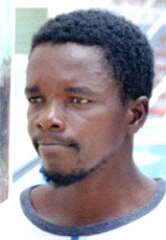At a hearing of the appeal filed by Clive Knights to his conviction and 57-year sentence for the murder of insurance company executive Bert Whyte, his attorney Dexter Todd is challenging the purported “blood” evidence” led in the case.
Arguing that the state failed to lead any conclusive forensic evidence substantiating the presence of suspected blood as alluded to by one of its witnesses, counsel contended that trial judge Navindra Singh ought to have directed the jury accordingly.
Todd said that though the police witness had testified to seeing two spots of what “appeared to have been blood” at the crime scene, the trial judge in his summation of the case to the jury directly and definitively said that “it was blood.”

Counsel advanced that in the absence of the state leading any forensic evidence at all that it was blood, whether it was human blood and whose blood it was in the first place, would have left the jury open to speculation.
With such an opening, he said that the judge would have then misdirected the jury on how to treat with bloodstain evidence, even as he added that the judge would have been wrong to definitively refer to the substance as blood.
Citing case law authority, the lawyer said that such a pronouncement by the trial judge would have been more prejudicial than probative to his client, which could have led to speculation on the part of the jury that the purported blood belonged to the deceased.
On this point, he also noted that a civilian witness, who had testified to seeing Whyte lying on the ground, never spoke of seeing him bleeding or with any injuries. He further stated that the state had no eyewitness to the crime.
Against this background, he said that it then raises the question as to how and when the deceased died, what exactly caused his death and perhaps who or what caused his death.
Todd reasoned that with Whyte’s body being seen by the witness without injury or blood, the chain of custody needed to be accounted for from the time he would have been transported from the scene to the hospital and whether he may have sustained any injury between that period.
For him, the trial judge ought to have provided clearer directions to the jury.
Further arguments on the appeal will continue on February 5th at 1.30 before acting Chancellor Yonette Cummings-Edwards and Justices of Appeal Rishi Persaud and Dawn Gregory.
Representing the Chambers of the Director of Public Prosecutions is state attorney Stacy Goodings.
Among other things, Knights is arguing in his appeal that the sentence imposed upon him by Justice Singh was excessive.
Additionally, he is contending that his trial lawyer failed to present his defence or did not adequately represent the issues surrounding an alleged caution statement.
As a result, Knights regards his conviction as being unsafe and contends that a jury properly directed might not have arrived at the same decision.
On June 18th, 2015, Knights was sentenced to 57 years after a jury found him guilty of murdering Whyte, who died after being stabbed twice to the chest on May 14th, 2012.
Justice Singh had commenced the sentence at a base of 60 years but deducted three years for the time Knights had spent on remand awaiting trial. From the remaining 57 years, the judge had said that Knights was not to become eligible for parole before serving 30 years.
The state’s case against the convict was that he had stabbed Whyte twice in the chest at Bentinck Street, South Cummingsburg.
It was also stated that Knights had changed the licence plate on Whyte’s car before making his way to Berbice, where the car was later found abandoned.
After being stabbed, Whyte had managed to make his way to popular night spot, Palm Court and called out for somebody to take his phone and call an ambulance. He then collapsed. He was then placed in a taxi and taken to hospital.
Pathologist Dr Nehaul Singh had confirmed that Whyte had died from haemorrhage and shock due the perforation of the heart and lungs as a result of the stab wounds he sustained.
Whyte, who was 44 at the time of his death, had been the personnel manager at the Georgetown Public Hospital Corporation for 10 years before taking up the position of Assistant Company Secretary at GTM insurance Company, where he had been working for six months prior to his death.





